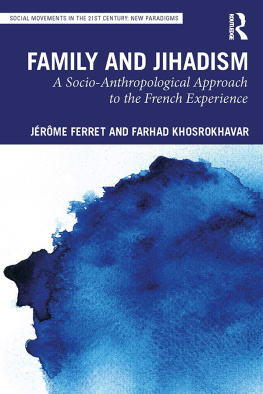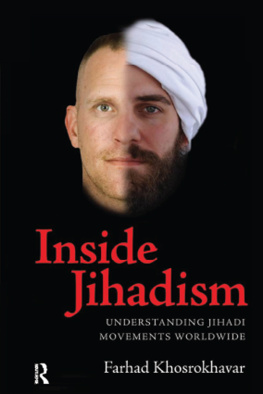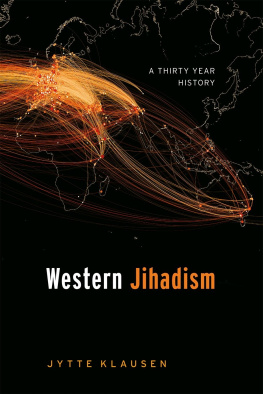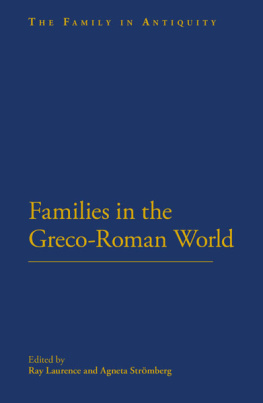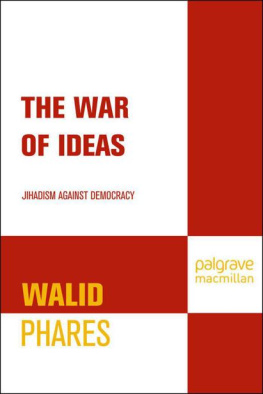Family and Jihadism
This volume explores the paramount importance of family to jihadism in France, Spain and in Europe more generally. In France, special focus is given to the paradigmatic case study of Mohammed Merah in the Toulouse region. In Spain, attention is given to the North and to Catalonia. With attention to both the concrete family often in crisis and the imaginary family invented by radicalised youth to substitute, this book shows the fundamental need among many jihadists to reconstitute the family, whether in the form of a clan or the imagined Caliphate (or neo-Ummah): a form of shared existence that offers escape from societies in which jihadists feel ill at ease. Demonstrating the failure of an emphasis on the individual actor to capture the meaning of jihadism, Family and Jihadism reveals the fundamental importance to our understanding of jihadist activity of the family (in an extended anthropological sense) real or imagined into which the individual is inserted. A study of the crisis of family and the re-creation of a new, enlarged family in the lives of young jihadists, this book will appeal to scholars of sociology, anthropology, politics and security studies with interests in radicalisation, political violence, social movements and religious violence.
Jrme Ferret is Associate Professor of Sociology (HDR) at University of Toulouse Capitole (Idetcom) and Co-Director of the Maison des Sciences de lHomme et de la Socit de Toulouse (MSHS T, UAR 3414, CNRS, France). He is the author of Crisis social, movimientos y sociedad en Espaa hoy: Ensayo sobre el proceso Conflicto, Violencia y Subjetivacin.
Farhad Khosrokhavar is retired Professor of Sociology at Ecole des Hautes Etudes en Sciences Sociales (EHESS), Paris, France. He is the author of Suicide Bombers: Allahs New Martyrs and Inside Jihadism: Understanding Jihadi Movements Worldwide.
Social Movements in the 21st Century: New Paradigms
Series Editor:
Kevin McDonald, Middlesex University, UK.
Moving beyond the interpretative frameworks constructed to make sense of social movements half a century ago, Social Movements in the 21st Century: New Paradigms seeks to renew our understanding of collective action today.
With a focus on social and political actors and experience, this series provides a space for engaging with emerging forms of action and organization, subjectivities, embodiment, and new forms of solidarity. It values theoretical work and methodological innovation, rooted in western and non-western research, and seeks to engage with key questions linking movements to wider social and political transformations, in particular to shifts in contemporary capitalism and globalization.
Its focus includes moral imaginations and the production of ethics, emerging organizational practices, the significance of new media, digital technologies and new forms of communication, the role of art and imagination in action, the reconfiguration of public and private, and experiments in contemporary democracy. The series welcomes studies linking empirical work and theoretical renewal. These may include studies of action in workplaces, cities or neighbourhoods and address questions ranging from sexuality to race, with a focus on emerging forms of mobilisation, from digital action to occupations.
Moving beyond the 20th centurys progressive and secular paradigm in social movement studies, the series seeks to engage with the breadth of collective action today, whether in the form of religious movements, populist and antidemocratic movements, or violent movements, as in the form of contemporary terrorism.
Titles in the series:
Researching Far Right Movements
Ethics, Methodologies, and Qualitative Inquiries
Emanuele Toscano
The Interfaith Movement
Mobilising Religious Diversity in the 21st Century
Edited by John Fahy and Jan-Jonathan Bock
Family and Jihadism
A Socio-Anthropological Approach to the French Experience
Jrme Ferret and Farhad Khosrokhavar
First published 2022
by Routledge
2 Park Square, Milton Park, Abingdon, Oxon OX14 4RN
and by Routledge
605 Third Avenue, New York, NY 10158
Routledge is an imprint of the Taylor & Francis Group, an informa business
2022 selection and editorial matter, Jrme Ferret and Farhad Khosrokhavar; individual chapters, the contributors
The right of Jrme Ferret and Farhad Khosrokhavar to be identified as the authors of the editorial material, and of the authors for their individual chapters, has been asserted in accordance with sections 77 and 78 of the Copyright, Designs and Patents Act 1988.
All rights reserved. No part of this book may be reprinted or reproduced or utilised in any form or by any electronic, mechanical, or other means, now known or hereafter invented, including photocopying and recording, or in any information storage or retrieval system, without permission in writing from the publishers.
Trademark notice: Product or corporate names may be trademarks or registered trademarks, and are used only for identification and explanation without intent to infringe.
British Library Cataloguing-in-Publication Data
A catalogue record for this book is available from the British Library
Library of Congress Cataloging-in-Publication Data
A catalog record has been requested for this book
ISBN: 978-1-032-07346-0 (hbk)
ISBN: 978-1-032-07734-5 (pbk)
ISBN: 978-1-003-20857-0 (ebk)
DOI:10.4324/9781003208570
This book was produced thanks to funding from the project funded by the Agence Nationale de la Recherche, ANR-16-CE390010 SoV (20162021), led by the Fondation de la Maison des Sciences de lHomme (FMSH, Paris) in partnership with Maison des Sciences de lHomme et de la Socit Toulouse (MSHS T, UAR 3414, CNRS).
This joint research venture originated in a collective seminar led by Farhad Khosrokhavar, Jrme Ferret and Bruno Domingo. They were later joined by David Vavassori and Sonia Harrati, then Bartolomeo Conti and finally Abderrahim El Janati. They took as their starting point the book Le nouveau jihad en Occident (Khosrokhavar 2018).
This present book is about the family, and the general and heuristic typology proposed in the book is in relation to the urban structure (the jihadogenic urban), and the national specificity in each European country.
The investigations proposed in this book do not aim at simply confirming the categories used by this heuristic model, but rather at enlarging them and, if possible, including other subsets. The author himself proposed cases of ideal-typical figures that could be extended by deep empirical research.
We would like to express our gratitude to all the actors we met during all the field work for their help and trust. They will recognise themselves in these pages.
We would also like to thank the editors at Routledge, in particular Neil Jordan and Alice Salt, not forgetting series editor, our colleague Kevin McDonald, for the trust that he placed in us for this original project.
Jrme Ferret is Associate Professor of Sociology at University of Toulouse Capitole, Co-director of the Maison des Sciences de lHomme et de la Socit de Toulouse (MSHS T, UAR 3414 CNRS, Toulouse, France). He studies political violence, terrorism, social movements and the confrontational dynamics (conflict/violence) between youth and police in urban areas in France (community policing) and in Spain (Radical Nationalist Violence in Basque Country, urban violence in Catalonia). Ferrets research interests comprise the following social and political issues: the dynamics of conflict and violence, urban violence, anti-system movements, community policing and counter-terrorism policing, and he is currently working with Vincent Spenlehauer on the a socio-history on the structure and effects of counter-terrorism policies (APAT Model) in the USA, Spain, France and Israel. He has published around 30 articles in international reviews such as

